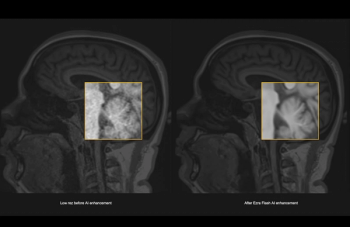
The artificial intelligence (AI)-powered Ezra Flash reportedly enhances magnetic resonance imaging (MRI) and enables significant reductions in scan times and costs for full-body MRI.
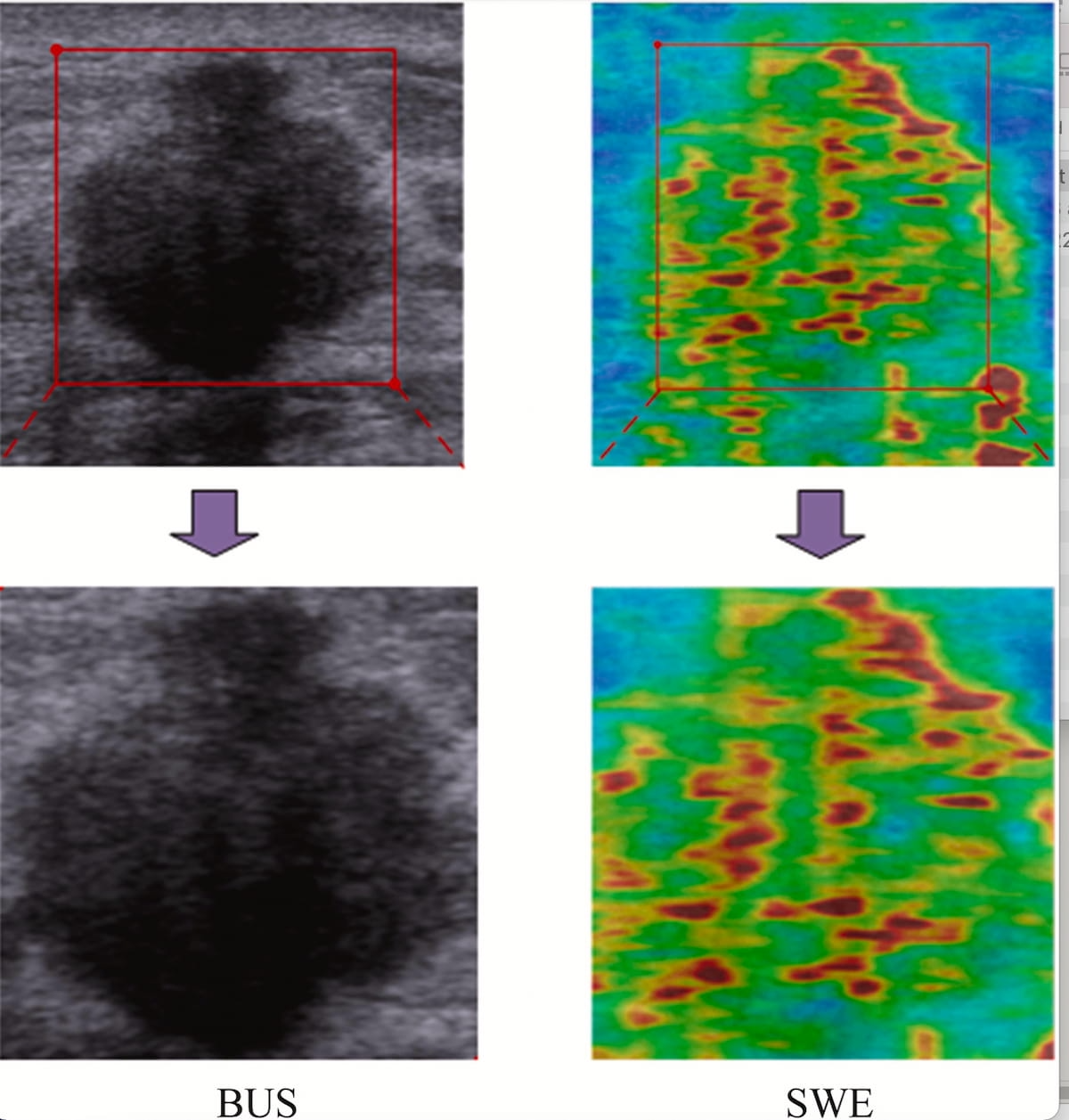
Can an AI Combination of Ultrasound and Molecular Data Predict Chemotherapy Response in Breast Cancer Patients?

Study Assesses Ability of Mammography AI Algorithms to Predict Breast Cancer Risk

The artificial intelligence (AI)-powered Ezra Flash reportedly enhances magnetic resonance imaging (MRI) and enables significant reductions in scan times and costs for full-body MRI.
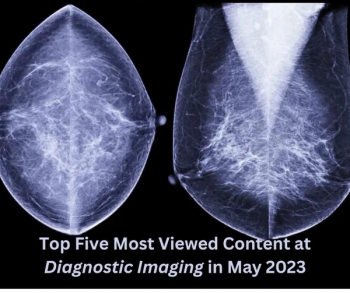
Catch up on the top five most viewed content at Diagnostic Imaging for the month of May 2023.
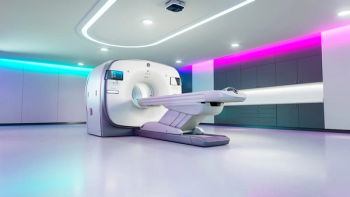
Precision DL, a deep learning-based software which will be available on GE HealthCare’s Omni Legend PET/CT device, reportedly increases the detectability of small, low-contrast lesions by 42 percent.

Catch up on the top radiology content of the past week.
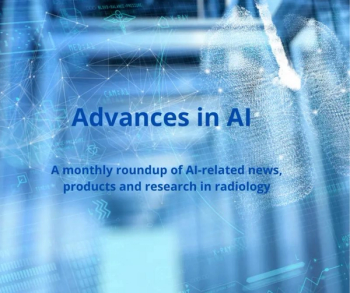
Catch up on the top AI-related news and research from the past month.
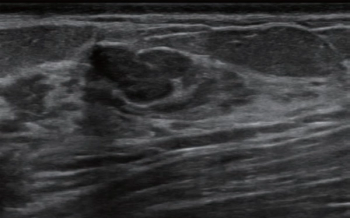
Emerging breast ultrasound research showed the use of computer-aided diagnosis (CAD), powered by deep learning, led to 24 percent and 36.9 percent improvements in accuracy and specificity, respectively, in the use of BI-RADS classifications by radiologists without breast ultrasound expertise.
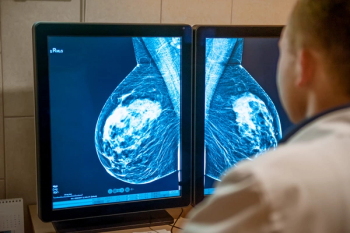
Six reader studies on digital mammography revealed a pooled sensitivity rate of 80.8 percent for stand-alone artificial intelligence (AI) in comparison to 72.4 percent for radiologist assessment while seven historic cohort studies showed a 75.8 percent pooled sensitivity rate for stand-alone AI versus 72.6 percent for radiologist interpretation of digital mammography.

Catch up on the top radiology content of the past week.
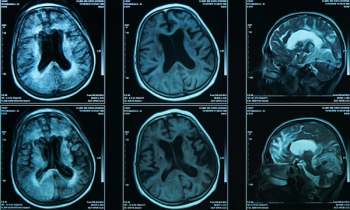
Through artificial intelligence (AI), Neurophet AQUA reportedly provides segmentation and analysis of brain magnetic resonance imaging (MRI) for possible brain atrophy in five minutes.
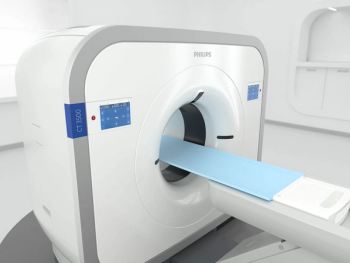
The artificial intelligence (AI)-enabled CT 3500 system reportedly reduces patient positioning time by 23 percent, improves low-contrast detectability by 60 percent and facilitates up to an 80 percent reduction in radiation dosing.

In a recent interview, Rajesh Bhayana, M.D., shared insights from new research that compared the abilities of ChatGPT-3.5 and ChatGPT-4 to answer text-based questions akin to those found on a radiology board examination.
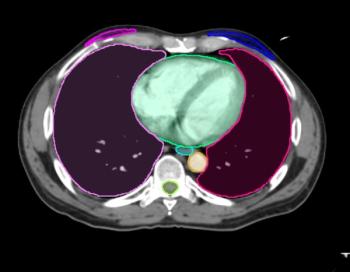
Updates to Contour ProtegeAI 4.0 reportedly include enhanced algorithms for radiation oncology segmentation and molecular radiotherapy.

Catch up on the top radiology content of the past week.

In a recent video interview, David Ouyang, M.D., shared insights from two recent studies he co-authored on the use of artificial intelligence (AI) to improve initial assessment of left ventricular ejection fraction (LVEF) on echocardiography and ascertain cardiac risks associated with changes in the left ventricle sphericity index seen on magnetic resonance imaging (MRI).
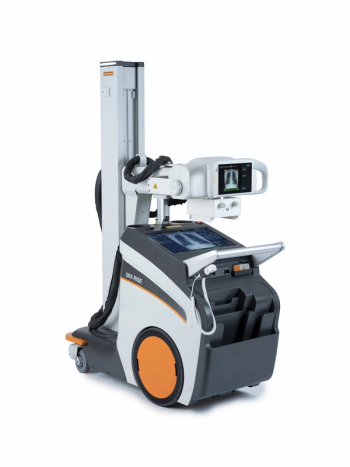
The DRX-Rise Mobile X-ray System reportedly combines optimal image quality with enhanced maneuverability and ease of use for radiologists.
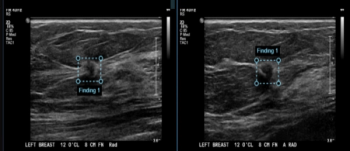
Adjunctive use of an artificial intelligence (AI) software demonstrated nearly equivalent sensitivity and over 28 percent higher accuracy in comparison to radiologist assessment of breast ultrasound images for breast lesions, according to new research presented at the recent Society of Breast Imaging (SBI) conference.

Catch up on the top radiology content of the past week.
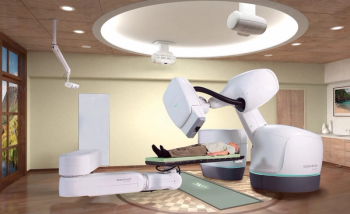
In a review of the literature, this author discusses the viability of artificial intelligence (AI), parallel imaging, compressed sensing and simultaneous multi-slice excitation for improving the scan times and use of magnetic resonance imaging (MRI) to facilitate CyberKnife treatment.
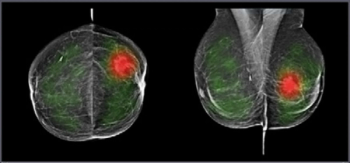
Regardless of experience level, radiologists are likely to be affected by automation bias when utilizing adjunctive artificial intelligence (AI) for mammography interpretation, according to newly published research.

Catch up on the top radiology content of the past week.
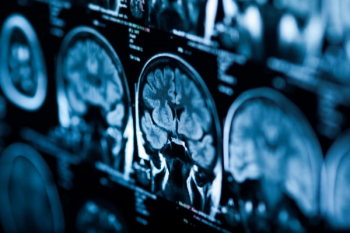
The artificial intelligence (AI)-powered Neuro Suite reportedly enables radiologists to access leading neurological AI algorithm solutions in the field, including the brain magnetic resonance imaging (MRI) segmentation capabilities of the Combinostics’ algorithm that can help differentiate degenerative pathologies such as Alzheimer’s disease and dementia.
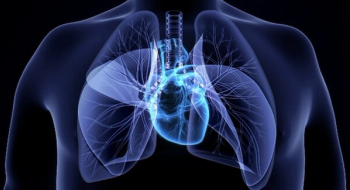
The artificial intelligence (AI)-powered EchoGo Amyloidosis can reportedly detect cardiac amyloidosis by assessing a single echocardiogram.

Catch up on the top AI-related news and research from the past month.

Catch up on the top radiology content of the past week.
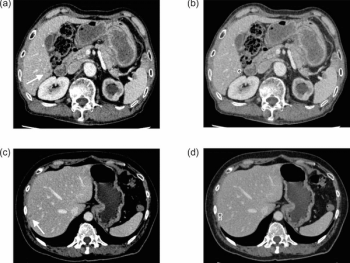
An emerging artificial intelligence (AI) software reportedly detected liver metastases in 53.7 percent of cases involving missed findings by radiologists.